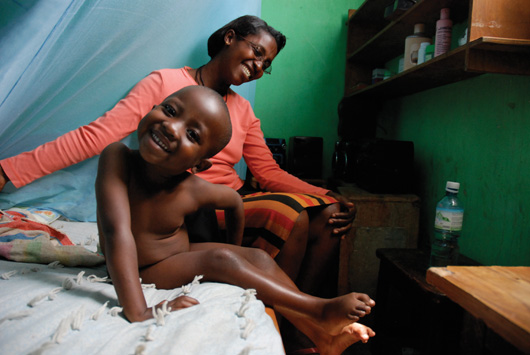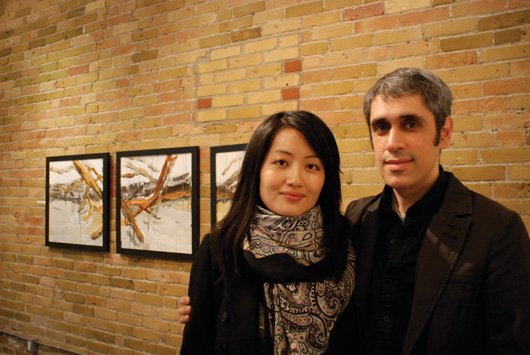In July 2008, Toronto lawyers Samer Muscati and Sandra Chu packed up three large suitcases in Sandra’s lakefront condo. Samer, a survivor of dengue fever and generally suspicious of foreign foods, filled half his suitcase with carefully-stacked granola bars, and the other half with clothes and camera equipment. Sandra stuffed the remaining two suitcases with notebooks and heaps of clothes — to become gifts — donated by family and friends. The ride to Pearson may have felt cramped, but this would be nothing compared to bouncing around in a rickety ambulance with worn-out shock absorbers on the unpaved desert roads of east-central Africa.

A day later, the pair arrived at Kigali’s international airport in Rwanda, where they were met by Anne-Marie de Brouwer and some staff from a local NGO, Solace Ministries. Sandra first met Anne-Marie at an international women’s human rights organization in The Hague, where both worked to advocate the prosecution of gender-based crimes at the International Criminal Court. Before parting ways at the end of their term, they conceptualized a book that would tell the story of the 1994 Rwandan genocide in the voice of the rape victims, primarily women infected with HIV, who remain hostages of the pain and shame they feel about their past.
“We envisioned it as a tool for reducing stigma,” says Sandra. “A lot of the women want to hide because they feel some sort of blame for being infected. I think it’s an empowering thing to be able to tell your story and show that there’s nothing to feel shameful about.”
This two-week reunion in Kigali was Sandra and Anne-Marie’s opportunity to gather testimonials; Solace Ministries helped by providing translators, transportation, and space to conduct the interviews. Samer was enlisted to bring to life the modern realities of the survivors with his camera — and independently traveled around Rwanda to capture the lives of these women in their homes.
The Men Who Killed Me, with a foreword by Stephen Lewis and an afterword by Eve Ensler, has garnered attention from all corners of the social justice arena, and is being regarded as a haunting, blunt account of the rape and “femicide” that underscored the Rwandan genocide. Roméo Dallaire, a Canadian senator and former commander of UN forces in Rwanda, has said, “Graphically, and without doubt, this book makes the case that rape is no lesser a crime than murder.”

Sandra Chu and Samer Muscati at the Craig Scott Gallery in Toronto. Sandra is a senior policy analyst with the Canadian HIV/AIDS Legal Network and Samer is a researcher for Human Rights Watch in New York.
Photography by Samer Muscati

